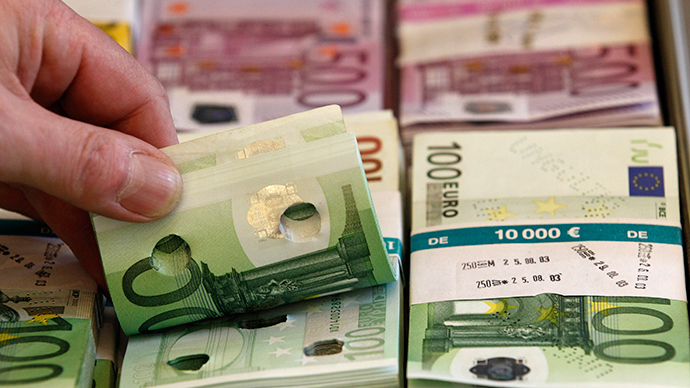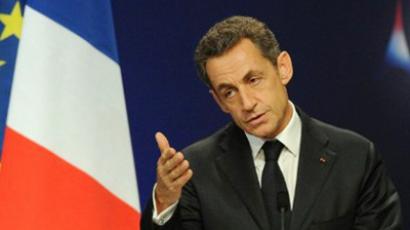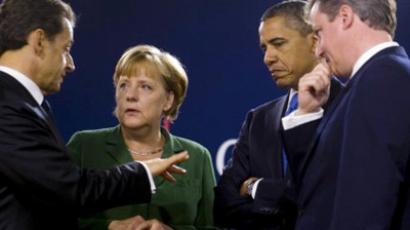‘Robin Hood’ wins: EU to levy Financial Transactions Tax from 2016

The EU has established a financial accord on an EU financial transactions tax to be implemented from 2016. Eleven EU member states will be imposing a ‘Robin Hood’ tax on financial transactions, after it was proposed in 2011 to counter financial crises.
The tax was proposed three years ago by German Chancellor Angela
Merkel and then French President Nicolas Sarkozy to encourage
banks to pay for the crippling financial crisis which had struck
the eurozone, plunging a range of countries, including Greece,
Ireland, Spain and Portugal, deep into debt.
“I believe we will reach a political agreement on a financial
transactions tax, all ministers are ready,” Luis de Guindos,
Spain's economy minister, told reporters ahead of the accord
being reached. “I hope we will reach agreement on the assets
to be included, mainly shares and some derivatives.”
Once passed, the FTT will be adopted by 11 EU states, excluding
Britain, from January 2016. Out of the 27 EU member states, those
which will be implementing the tax are France, Germany, Estonia,
Spain, Portugal, Italy, Greece, Austria, Belgium, Slovenia and
Slovakia.
However, questions regarding how the tax will be imposed and how
high it will be are still undecided.
Not all countries have been supportive. London has claimed that
the FTT will cause financial damage to British firms.
“The government is determined to continue to ensure that the
interests of countries outside of the single currency, but inside
the single market, are properly protected,” a UK Treasury
spokesman told the BBC last week.
The tax has frequently been described as a ‘Robin Hood Tax’ in
reference to the legend of the medieval tight-wearing,
anti-poverty campaigner Robin Hood, who supposedly robbed the
rich to give to the poor.
“If governments took a tiny tax from international bankers’
transactions, it could generate hundreds of billions of pounds
every year,” the UK-based Facebook ‘Robin Hood tax’ page
states.
“This is a fight between bankers and Robin Hood,” said
Natalia Alonso, a campaigner at Oxfam, told Reuters on Tuesday.
“We are saying that the money raised with this tax should go
to fighting poverty.”
The promise to impose the tax comes ahead of European elections,
during which a swerve to the right has been anticipated. However,
experts have stated that difficulties in the reality of
implementing the tax mean that the policy could be shelved over
the next couple of years, according to Reuters.
“The lack of information on the proposal is a real
problem,” Anders Borg, the Swedish finance minister and
long-term critic of the project, told the agency.














